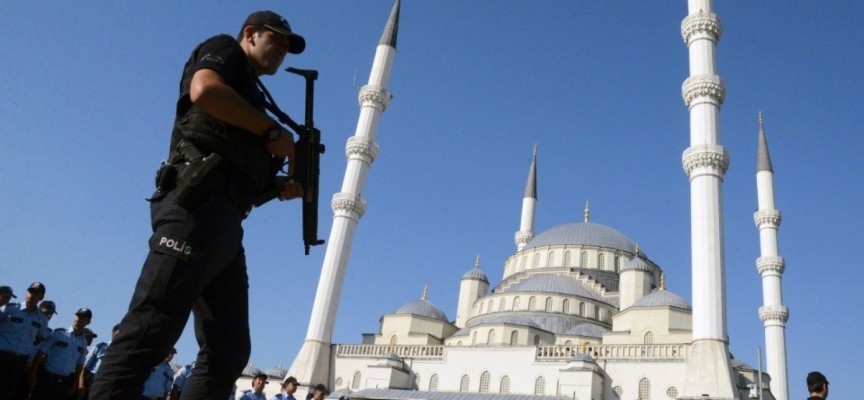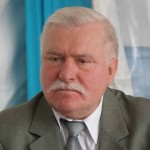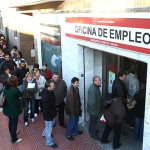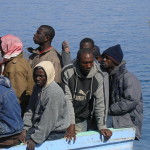Throughout history, relations between the “Turks” and the “Europeans” have never been simple. In recent years, while Europeans have been happily travelling to Turkey to spend their holidays there (before the region became inflamed), they have not always been so ready to recognise its inhabitants as a veritable alter ego. To start with, religious differences were the main focus of difficulty, but now the growing authoritarianism of its current president is fast becoming the primary cause for concern. In fact, after the military putsch of 15 July, which saw almost 250 dead and the parliament under attack, a number of Europeans almost seemed disappointed that the coup had not succeeded, raising their voices against the ferocious repression that followed. That reaction was not exactly popular in a country that feels disliked, and one where conspiracy theories are rife. It was also a blow to the moral authority of Europe.
A vicious circle of violence
To understand what is happening today in Turkey, you need to delve into the country’s history and the anthropology of its inhabitants. After the car bomb attack in the centre of Ankara in March 2016 by Kurdish PKK dissidents, the journalist Mustafa Akyol wrote that the vicious circle of combat between violent radical forces and an arrogant authoritarian state resembled a cinema film made by Turkey every decade, only with different actors. This vicious circle, he added, would continue “until one day people realise that there are no ‘forces of evil’ in our nation, but a certain degree of evil among us all.” Recognising this is one of the major challenges facing this country.
Turkey is one of the countries in the world where people have the least confidence in one another, a population divided into groups despising each other, fear each other, each group talking about the others but rarely to the others, whether they are “secular” Kemalists, devout Sunni, left-leaning Alevis, Kurds or Armenians. Moreover, the whole society (family, school, political parties etc) is conservative (patriarchal, authoritarian, hierarchical and imbued with an ethics of honour). A sense of compromise is more or less non-existent and, as a great many diplomats posted in Ankara have observed, “the Turks have no idea how to negotiate.”
A pyramidal State
The people are not helped by a State in which they have little confidence and which, when questioned, manipulates the existing divisions, revives fears of internal or external conspiracies (something it is doing very well at the moment) and repolarises society to further its aims – because the Turkish State, whatever hands it is in, seeks to control all areas of society in a pyramidal manner. That is why the State is the object of desire for all the groups that form Turkish society. All means are justified to seize or influence it. Whether by military coups, infiltration by Gülenists (which is a reality), or elections – this is a regime where “the law of the strongest” prevails. The current political regime in Turkey is called “majority democracy”. For better or for worse, it is now a “majority” that has power in Turkey and imposes itself on the others.
A swing of the pendulum
Modern Turkey itself is a young country not even a century old, born and built up in violence. Is it realistic to want Turkey to become a pluralist democracy while this violence still haunts one and all? Although since its creation Turkey has been moving two steps forward, one step back, it has nevertheless made progress. The most recent advances were made in the early 2000s, when national power was seen to swing gently between the hands of new political, economic and cultural elites and those of a section of the population who had hitherto been scorned by the elites in place, all this with the help of reforms implemented within the framework of negotiations with the EU. But due to a slowdown in the pace of reform, the obstacles encountered by other groups, the geopolitical developments in the region and the personality of the current president, there has been a radicalisation of existing power. This has caused a complete reverse swing of the pendulum, crushing the others, because it is better to crush than to be crushed.
Overcoming fear
The solution will only be found in a process of real dialogue between all the groups making up the country, and a new social contract. But if that is going to be achieved, everyone will have to stop being afraid of the others and looking out only for their own security at the expense of others. To that end, some impartial pressure coming from outside would be highly desirable. The process of integration into the EU could have acted as a catalyst, but for that to happen the European Member States need to overcome their own fears and commit themselves properly alongside the Turkish population. Unfortunately this is not likely to happen in the foreseeable future.
(source: Europeinfos #196)
Nella storia, i rapporti tra “turchi” ed “europei” non sono mai stati semplici. Ancora recentemente, seppure gli europei andassero volentieri in Turchia per trascorrere una vacanza (prima che la regione si surriscaldasse), non erano sempre pronti a riconoscerne gli abitanti come vero alter ego. Se, inizialmente, era la differenza religiosa ad avere il peso maggiore, ora è il crescente autoritarismo dell’attuale presidente che sta prendendo il sopravvento. Al punto che, dopo il colpo di stato militare del 15 luglio con i suoi 250 morti e il Parlamento bombardato, molti europei sembravano quasi tristi che questo colpo non fosse riuscito e hanno preferito sottolineare la feroce repressione che ne è seguita. Ciò non è stato affatto apprezzato in un Paese che si sente poco amato e dove le teorie del complotto si succedono a bizzeffe. E l’autorità morale dell’Europa ha subito un colpo.
Un circolo vizioso di violenze
Per capire ciò che sta accadendo oggi in Turchia, dobbiamo tener conto della storia di questo Paese e dell’antropologia dei suoi abitanti. Dopo l’esplosione dell’autobomba nel marzo 2016 al centro di Ankara per opera dei dissidenti curdi del Pkk, il giornalista Mustafa Akyol ha scritto che il circolo vizioso della lotta tra forze violente e radicali e uno stato arrogante e autoritario, è un film che la Turchia ha visto ripetersi ogni dieci anni identico, con attori diversi. Questo circolo vizioso, ha aggiunto, continuerà “finché un giorno ci si renderà conto che non ci sono ‘forze del male’ nella nostra nazione, ma piuttosto un po’ di male in ciascuno di noi”. Riconoscerlo è una delle principali sfide di questo Paese.
La Turchia è uno dei Paesi al mondo in cui le persone hanno meno fiducia gli uni negli altri, divise in gruppi che si disprezzano, hanno paura gli uni degli altri, parlano gli uni degli altri, ma raramente gli uni con gli altri, sia che si tratti di kemalisti “laici”, pii sunniti, aleviti di sinistra, curdi o armeni. Inoltre, la società nel suo insieme (famiglia, scuola, partiti…) è conservatrice (patriarcale, autoritaria, gerarchica e impregnata di un’etica dell’onore). Il senso del compromesso è praticamente inesistente e, come evidenziato da molti diplomatici ad Ankara, “i turchi non sanno negoziare”.
Uno stato piramidale
Essi non sono aiutati da uno Stato verso cui hanno poca fiducia e che, quando messo in discussione, manipola divisioni esistenti, fa rivivere i timori di un complotto interno o esterno (cosa che sta facendo molto bene in questo momento) e ri-polarizza la società per raggiungere i suoi scopi. Poiché lo Stato turco, in qualsiasi mani sia, cerca di guidare in modo piramidale la società in tutti i suoi ambiti. Per questo, lo Stato è oggetto delle ambizioni dei diversi gruppi che compongono la società turca. Tutti i mezzi sono buoni per prenderne possesso o influenzarlo: il colpo di stato militare, l’infiltrazione gülenista (che è reale), o le elezioni. Siamo nel regime della “legge del più forte”. Il regime politico attuale in Turchia si chiama “democrazia maggioritaria”. Nel bene e nel male, ora è una “maggioranza” che ha il potere in Turchia e che lo fa sentire agli altri.
L’oscillazione del pendolo
La Turchia è un paese giovane, che non ha nemmeno un secolo, che è nato ed è stato costruito nella violenza. Si vuole ora che la Turchia sia una democrazia pluralista mentre la violenza tormenta ancora tutti? Se, fin dall’inizio, la Turchia ha camminato “due passi avanti e uno indietro”, è comunque andata avanti. I progressi più recenti risalgono all’inizio del 2000, quando il potere è lentamente passato nelle mani di nuove élite politiche, economiche e culturali e di una parte della popolazione che era stata fino ad allora disprezzata dalle élite al potere, con l’aiuto delle riforme avviate nel contesto dei negoziati con l’UE. Ma con il rallentamento di queste riforme, gli ostacoli incontrati da parte di altri gruppi, gli sviluppi geopolitici nella regione e la personalità del presidente attuale, il potere si è radicalizzato facendo scivolare indietro il pendolo e schiacciando gli altri, perché è meglio schiacciare che essere schiacciati.
Superare la paura
La soluzione non si troverà se non in un vero e proprio processo di dialogo tra tutte le componenti del Paese e in un nuovo contratto sociale. Per raggiungere ciò, bisogna che ciascuno smetta di avere paura degli altri e di cercare la propria sicurezza a spese degli altri. Per questo, un supporto esterno imparziale sarebbe altamente desiderabile. Il processo d’integrazione nell’UE potrebbe servire da catalizzatore, ma richiederebbe che i Paesi europei superassero le proprie paure e s’impegnassero veramente a fianco del popolo turco. Purtroppo, questo non avverrà domani.
(fonte: Europeinfos #196; traduzione italiana a cura di Eurcom)
Turquie: comment sortir du cercle vicieux?
Les relations entre « Turcs » et « Européens » n’ont jamais été simples au cours de l’histoire. Plus récemment, si les Européens allaient volontiers en Turquie pour y passer des vacances (avant que la région ne s’enflamme), ils ne sont pas toujours prêts à reconnaître ses habitants comme de véritables alter ego. Si, au départ, la différence religieuse était souvent mise en avant, c’est maintenant l’autoritarisme croissant de son président actuel qui est en train de prendre le relais. Si bien qu’après le putsch militaire du 15 juillet, qui a fait près de 250 morts et vu le parlement bombardé, nombre d’Européens semblaient presque tristes que ce coup n’ait pas réussi, préférant insister sur la répression féroce qui s’en est suivie. Cela n’a guère été apprécié dans un pays qui se sent mal aimé et où les théories du complot sont foison. Et l’autorité morale de l’Europe en a pris un coup.
Un cercle vicieux de violences
Pour comprendre ce qui se passe aujourd’hui en Turquie, il faut prendre en compte l’histoire de ce pays et l’anthropologie de ses habitants. Après l’attentat à la voiture piégée qui eut lieu en mars 2016 au centre d’Ankara par des dissidents kurdes du PKK, le journaliste Mustafa Akyol écrivait que le cercle vicieux du combat entre des forces violentes et radicales et un Etat arrogant et autoritaire était un film que la Turquie voyait se reproduire à l’identique à chaque décennie, avec des acteurs différents. Ce cercle vicieux, ajoute-t-il, continuera « jusqu’à ce qu’un jour on réalise qu’il n’y a pas de ‘forces du mal’ au sein de notre nation, mais plutôt un certain degré de mal en chacun d’entre nous ». Cette reconnaissance est un des défis majeurs de ce pays.
La Turquie est un des pays du monde où les gens ont le moins de confiance les uns envers les autres, divisé en groupes qui se méprisent, ont peur les uns des autres, parlent les uns sur les autres mais rarement les uns aux autres, qu’ils soient kémalistes « laïcs », pieux sunnites, alévis de gauche, kurdes, ou arméniens. De plus, dans son ensemble la société (famille, école, partis…) est conservatrice (patriarcale, autoritariste, hiérarchisée et empreinte d’une éthique de l’honneur). Le sens du compromis est quasiment inexistant et, comme en témoignent de nombreux diplomates en poste à Ankara, « les Turcs ne savent pas négocier ».
Un Etat pyramidal
Ils ne sont pas aidés par un Etat auquel ils font peu confiance et qui, lorsqu’il est mis en question, manipule les divisions existantes, ravive les peurs du complot intérieur ou extérieur (ce qu’il fait très bien pour le moment), et repolarise la société pour arriver à ses fins. Car l’Etat turc, en quelques mains qu’il soit, vise à diriger la société en tous domaines, de manière pyramidale. C’est pourquoi, l’Etat est objet de convoitise par les différents groupes formant la société turque. Tous les moyens sont bons pour s’en emparer ou l’influencer : le coup des militaires, l’infiltration des gülenistes (qui est une réalité), ou les élections : nous sommes ici dans le régime de « la loi du plus fort ». Le régime politique actuel en Turquie s’appelle « démocratie majoritaire ». Pour le meilleur et pour le pire, c’est maintenant une « majorité » qui a le pouvoir en Turquie et qui le fait sentir aux autres.
Le retour du balancier
La Turquie est un pays jeune qui n’a même pas un siècle, qui est né et s’est construit dans la violence. On voudrait maintenant que la Turquie soit une démocratie pluraliste alors que cette violence hante encore chacun ? Si, depuis ses débuts, la Turquie a marché « deux pas en avant, un pas en arrière », elle a néanmoins progressé. Les avancées les plus récentes se situent au début des années 2000, qui a vu le pouvoir basculer lentement entre les mains des nouvelles élites politiques, économiques et culturelles et d’une partie de la population qui avait jusque là été méprisée par les élites en place, avec l’aide de réformes mises place dans le cadre des négociations avec l’UE. Mais avec le ralentissement de ces réformes, les obstacles rencontrés de la part d’autres groupes, les évolutions géopolitiques de la région, et la personnalité du président actuel, le pouvoir en place s’est radicalisé effectuant le retour complet du balancier, écrasant les autres, car il vaut mieux écraser qu’être écrasé.
Dépasser la peur
La solution ne se trouvera que dans un processus de dialogue vrai entre toutes les composantes du pays et un nouveau contrat social. Mais pour cela il faut que chacun cesse d’avoir peur de l’autre en cherchant sa propre sécurité aux dépens de l’autre. Pour cela, un appui extérieur impartial serait hautement souhaitable. Le processus d’intégration dans l’UE aurait pu servir de catalyseur, mais pour cela il faudrait que les pays européens dépassent leurs propres peurs et s’engagent vraiment aux côtés du peuple turc. Ce n’est malheureusement pas encore pour demain.
(source: Europeinfos #196)
Türkei: Wie lässt sich der Teufelskreis durchbrechen?
Die Beziehungen zwischen „Türken” und „Europäern” waren im Laufe der Geschichte nie wirklich einfach. In jüngster Zeit verbrachten die Europäer zwar gerne ihre Ferien in der Türkei (bevor die Spannungen dort ausbrachen), doch sind sie nur selten bereit, deren Bewohner wirklich als ihresgleichen anzuerkennen.
Während früher oft die unterschiedliche Religionszugehörigkeit eine zentrale Rolle spielte, hat sich der Fokus nun auf den zunehmenden Autoritarismus des derzeitigen Präsidenten verlagert. Dies geht so weit, dass viele Europäer das Scheitern des Militärputsches vom 15. Juli, der 250 Opfer forderte und ein stark beschädigtes Parlamentsgebäude hinterließ, beinahe zu bedauern schienen und auf die harten Repressionen des türkischen Staates als Antwort auf den Putschversuch verwiesen. Diese Reaktion ist in einem Land, das sich ungeliebt fühlt und in dem Verschwörungstheorien kursieren, nicht wirklich gut aufgenommen worden. Und auch die moralische Autorität Europas ist dadurch geschwächt worden.
Ein Teufelskreis der Gewalt
Um das aktuelle Geschehen in der Türkei wirklich verstehen zu können, müssen wir die Geschichte des Landes und die Anthropologie seiner Bewohner in den Blick nehmen. Nachdem im März 2016 kurdische Dissidenten der PKK eine Autobombe im Zentrum Ankaras gezündet hatten, schrieb der Journalist Mustafa Akyol, der Teufelskreis des Kampfes zwischen den gewalttätigen und radikalen Kräften und einem selbstherrlichen und autoritären Staat mute wie ein Film an, der in der Türkei jedes Jahrzehnt von Neuem mit gleicher Handlung, aber wechselnden Akteuren gedreht wird. Dieser Teufelskreis werde solange weitergehen, „bis man eines Tages feststellt, dass es in unserer Nation keine ‚Kräfte des Bösen’ gibt, sondern jeder von uns ein gewisses Maß an Bösem in sich trägt”. Das Erlangen dieser Erkenntnis ist eine der größten Herausforderungen, vor denen das Land gegenwärtig steht.
Die Türkei ist weltweit eines der Länder, in denen das gegenseitige Vertrauen der Menschen am geringsten ist; es ist zersplittert in verschiedene Bevölkerungsgruppen, die einander gering schätzen, voreinander Angst haben und übereinander, aber nur selten miteinander sprechen, seien es nun „weltliche” Kemalisten, fromme Sunniten, links orientierte Aleviten, Kurden oder Armenier. Darüber hinaus ist die türkische Gesellschaft insgesamt (in Bezug auf Familie, Schule, Parteien usw.) konservativ geprägt (d. h. patriarchalisch, autoritär, hierarchisch strukturiert und geprägt von einer Ethik, in der dem Ehrenkodex eine zentrale Rolle zukommt). Kompromissbereitschaft ist Mangelware, und „die Türken können nicht verhandeln” – diese Erfahrung haben zahlreiche in Ankara ansässige Diplomaten gemacht.
Ein pyramidal organisierter Staat
Die Menschen werden von einem Staat, dem sie nur geringes Vertrauen entgegenbringen, alleingelassen; wird dieser Staat in Frage gestellt, nutzt er die bestehenden Spaltungen geschickt für sich aus, entfacht von Neuem die Angst vor einem Komplott von innen oder außen (was ihm derzeit sehr gut gelingt) und polarisiert die Gesellschaft immer wieder, um seine eigenen Ziele zu erreichen. Denn unabhängig davon, wer die Staatsmacht innehat, strebt der pyramidal organisierte türkische Staat an, alle gesellschaftlichen Bereiche von oben nach unten zu lenken.
Für die verschiedenen Gruppen, die die türkische Gesellschaft ausmachen, ist von daher die Staatsmacht ein Objekt der Begierde. Alle Mittel sind recht, um sich die Macht anzueignen oder Einfluss auf sie zu nehmen: ein Militärputsch, die gezielte (und tatsächlich stattfindende) Einschleusung von Gülenisten oder auch Wahlen: Hier in der Türkei gilt nämlich das „Gesetz des Stärkeren”. Das aktuelle politische System der Türkei wird als „Mehrheitsdemokratie” bezeichnet. Die Macht wird – im Guten wie im Schlechten – nun von einer „Mehrheit” ausgeübt, die dies alle anderen spüren lässt.
Das Pendel schlägt in die andere Richtung
Die Türkei ist mit ihren noch nicht einmal hundert Jahren ein junges Land, das aus der Gewalt heraus geboren wurde und sich unter gewaltsamen Umständen entwickelt hat. Und jetzt, wo doch die Gewalt noch allgegenwärtig ist, möchte man, dass die Türkei eine pluralistische Demokratie sei? Auch wenn die Türkei seit ihren Anfängen immer „zwei Schritte vorwärts und einen Schritt zurück” gegangen ist, so ist sie nichtsdestotrotz vorangeschritten.
Die jüngsten Fortschritte erlebte die Türkei Anfang der 2000er Jahre, als die Macht allmählich in die Hände der neuen politischen, wirtschaftlichen und kulturellen Eliten und eines bis dahin von den bisherigen Eliten verachteten Bevölkerungsteils überging, und zwar mit Hilfe von Reformen, die im Rahmen der Verhandlungen mit der EU angegangen wurden. Doch mit der Verlangsamung dieser Reformen, den für andere Bevölkerungsgruppen bestehenden Hindernissen, den geopolitischen Entwicklungen der Region und der Persönlichkeit des aktuellen Präsidenten ist es zu einer Radikalisierung der Staatsmacht gekommen; diese hat bewirkt, dass das Pendel komplett in die andere Richtung ausgeschlagen ist und alle anderen Kräfte unterdrückt wurden – denn selber unterdrücken ist besser, als unterdrückt zu werden.
Die Überwindung der Angst
Eine Lösung wird nur in einem echten Gesprächsprozess zwischen allen Bevölkerungsgruppen und in einem neuen Gesellschaftsvertrag zu finden sein. Sie kann aber bloß dann erreicht werden, wenn alle ihre Angst voreinander verlieren und nicht länger ihre eigenen Sicherheitsinteressen auf Kosten anderer verfolgen. Damit dies gelingt, wäre eine unparteiliche Unterstützung von außen höchst wünschenswert. Der EU-Integrationsprozess hätte als Katalysator dienen können, aber dazu müssten die europäischen Länder ihre eigenen Ängste überwinden und sich ernsthaft auf Seiten des türkischen Volkes engagieren. Aber das ist wohl leider noch Zukunftsmusik.
(quelle: Europeinfos #196)
Jean-Marc Balhan SJ
Latest posts by Jean-Marc Balhan SJ (see all)
- Turkey: getting out of the vicious circle - 7 settembre 2016











